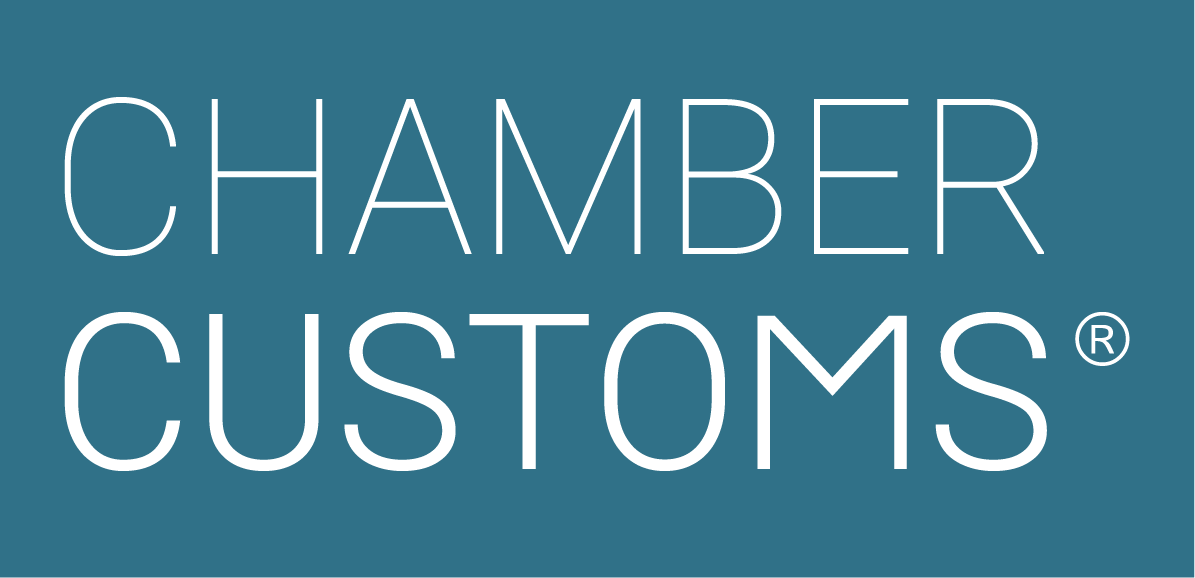Rules of Origin Explainer Video
Join Liam Smyth, Managing Director at ChamberCustoms as he discusses Rules of Origin.
If you are new to this website, Chamber Customs offer Customs Clearance, Customs Consultancy and Customs Training for businesses trading internationally. If you are importing and exporting goods in or out of the UK - ChamberCustoms can offer you compliant and efficient digital customs clearance on the new CDS system with expert and experienced customs clearance agents.
Liam explains the Rules of Origin and why they matter - defining the origin of a product. Every item has a definite country of origin - regardless of the product. Origin is the basis for imposing rates of duties and taxes. All goods need a confirmed origin when entering or leaving the country.
Understanding rules of origin is crucial to trading internationally - importing and exporting.
This is one of a series of videos designed to help small businesses like yours understand how to trade internationally:
Rules of Origin and why they matter
Here we focus on a vital part of importing and exporting goods - the 'Rules of Origin'. First, let's define the origin of a product. Every year, more than 12 trillion pounds of goods are traded amongst the world's nations. Whether it's a mattress or mascara, textiles or wall tiles, machine oil or massage oil, every item has a definite country of origin.
Authorities rely on the origin of the goods, which means their economic nationality, to keep track of what is being brought into their country. It's the basis for imposing their duty rate or taxes as all goods traded abroad need an origin when they are declared to customs on entering or leaving a country. So the question you need to answer is 'where are your products from?'.
It seems simple at first glance, but what does it mean? Is it where the goods were produced or where they were shipped from? and if the goods were manufactured in several different countries, which applies?
The rules of origin enable you to answer these questions to help the authorities determine where the goods have come from. If your business is importing or exporting goods, you need to know which country they have come from. That is because certain originating countries attract lower rates of duty than others. So it's important to know that you will not pay too much or too little in duty. How do you do this? There are two ways of working out which country goods have originated from.
Non-preferential rate of origin
The first sort of origin is a non-preferential rate of origin. This is used to decide which of the destination country's trade policy measures would apply to imported goods, what contributes to a country's trade statistics, or what labelling regulations apply. Each country establishes its own rules based on two main principles. Either wholly obtained, where products are entirely from one country. Or last substantial transformation. This applies where more than one country was involved in producing the goods. The country where the last substation transformation took place is usually determined as the origin of the goods.
Preferential rule of origin
The second sort of origin is the preferential rule of origin, which applies when products have originated from countries with which we have signed a trade agreement. This helps establish whether a preferential tariff can be applied to the product, benefitting from a reduced duty rate - usually zero per cent, under a specific trade deal.
How do rules of origin affect my business?
The origin of a product affects your business because this needs to be declared on a customs declaration each time you import or export goods to the UK. It's important to declare the correct origin of goods when importing them as it will define the rate of duty you will pay. For example, when there's a preferential trade deal, the preferential origin can be declared, resulting in a reduced duty rate. However, if there's no trade deal, the non-preferential origin must be declared to ensure that the correct trade policy measures are applied.
Declaring an incorrect country of origin may need non-compliance with the customs authority and may be considered fraud.
Getting your goods certified
So how do you get your goods certified before importing or exporting them? Well, it depends on where they originate from. For non-preferential origin, this can be confirmed by a certificate of origin obtained by Chambers of Commerce across the UK or from the national chamber in the export country. For preferential origin, it can be certified for export in several ways. Either by self-declaring the origin of goods correctly on your invoice or by obtaining a preferential certificate from a local chamber of commerce. You should submit this as evidence of origin to customs at the point of import so that you can benefit from preferential duty rates. If the invoice, declaration or certificate is rejected, the full duty rate will need to be paid at import.
Customs Clearance following Brexit
Now the UK has left the EU; there's an additional step when it comes to importing and exporting. This is before, for some goods, the exporter may also need to have what is called 'Supplier declarations'. A supplier provides documents formally declaring the origin of the goods and that they meet the product-specific rules of origin. You must let your customers know if you sell into the EU and can't provide a supplier declaration. Your EU customers will be liable to pay the full non-preferential rate of customs duty. It may be helpful to seek specialist advice when you want to use supplier declarations to support your proof of origin documentation.
Recap
Understanding where your goods originated is a crucial part of international trading. There are two main origin rules: the non-preferential and the preferential origin. For more detailed information, please visit our Rules of Origin content hub.
Contact us today for assistance with customs clearance, customs training or bespoke consultancy requirements.
